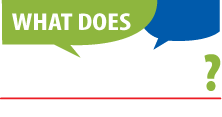Phrases starting with the letter: A B C D E F G H I J K L M N O P Q R S T U V W X Y Z
Definition of: should
(shood)
Past tense of SHALL, but rarely a true past, rather chiefly used as a modal auxiliary which, while conveying varying shades of present and future time, expresses a wide range of subtly discriminated feelings and attitudes:
1. Obligation or propriety in varying degrees, but milder than ought: You should write that letter; Should we tell him the truth about his condition? His father thought that he should go; You should really taste that cake!
2. Condition: a Simple contingency, but involving less probability than shall or the present with future sense: If I should die before I wake. . . If I should go, he would go too. b Assumption: Should (= Assuming that) the space platform prove practicable, as seems almost certain, a trip to the moon will be easy.
3. Surprise at an unexpected event in the past: When I reached the station, whom should I run into but the detective!
4. Expectation: I should be at home by noon. (“I said that I should be home by noon'' implies expectation, whereas “I said that I would be home by noon'' implies intention.)
5. U.S. Colloq. Irony, in positive statement with negative force: He'll be fined heavily, but with all his money he should (= need not) worry!
6. Hesitation or deprecatory modesty, in the first person: I should hardly think so; We should like to have you come to dinner, if you are free and have nothing better to do. (Ordinarily, in American usage, but not in British, would is used in the first person, as well as in the second and third, before like, prefer, etc.: We would, or We'd, like to have you come to visit us.) See usage note under WOULD. [OE scolde, pt. of sculan owe]

Comment about this word, ask questions, or add new information about this topic: